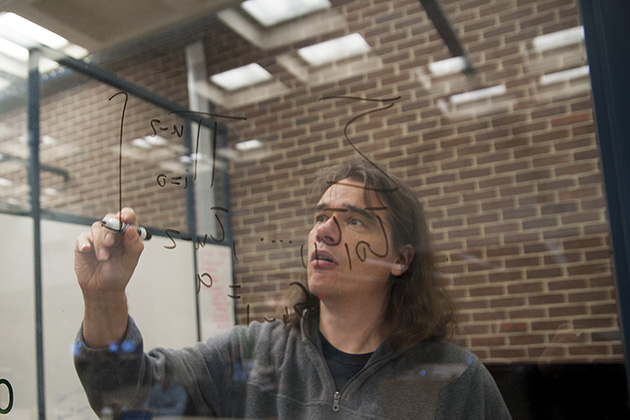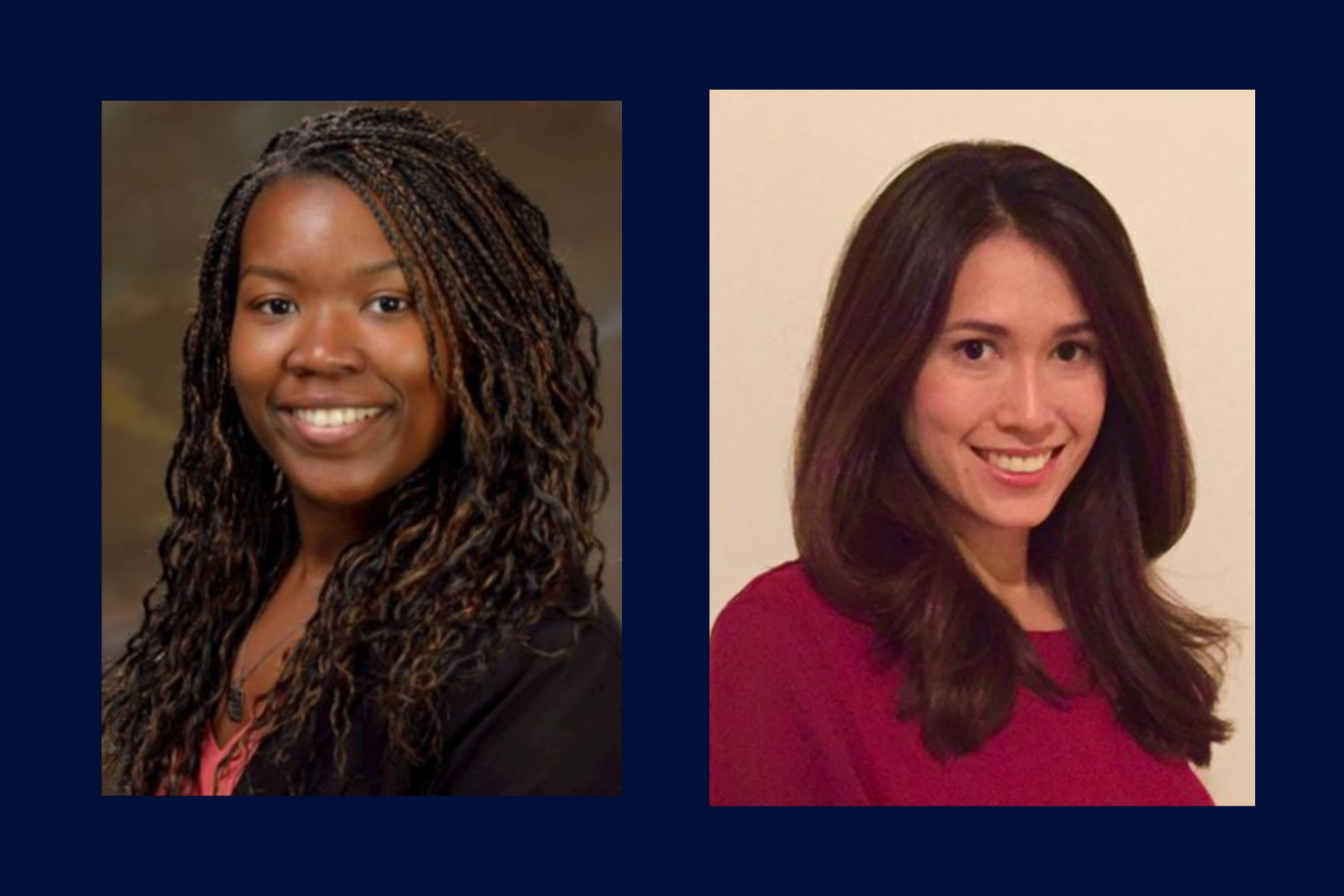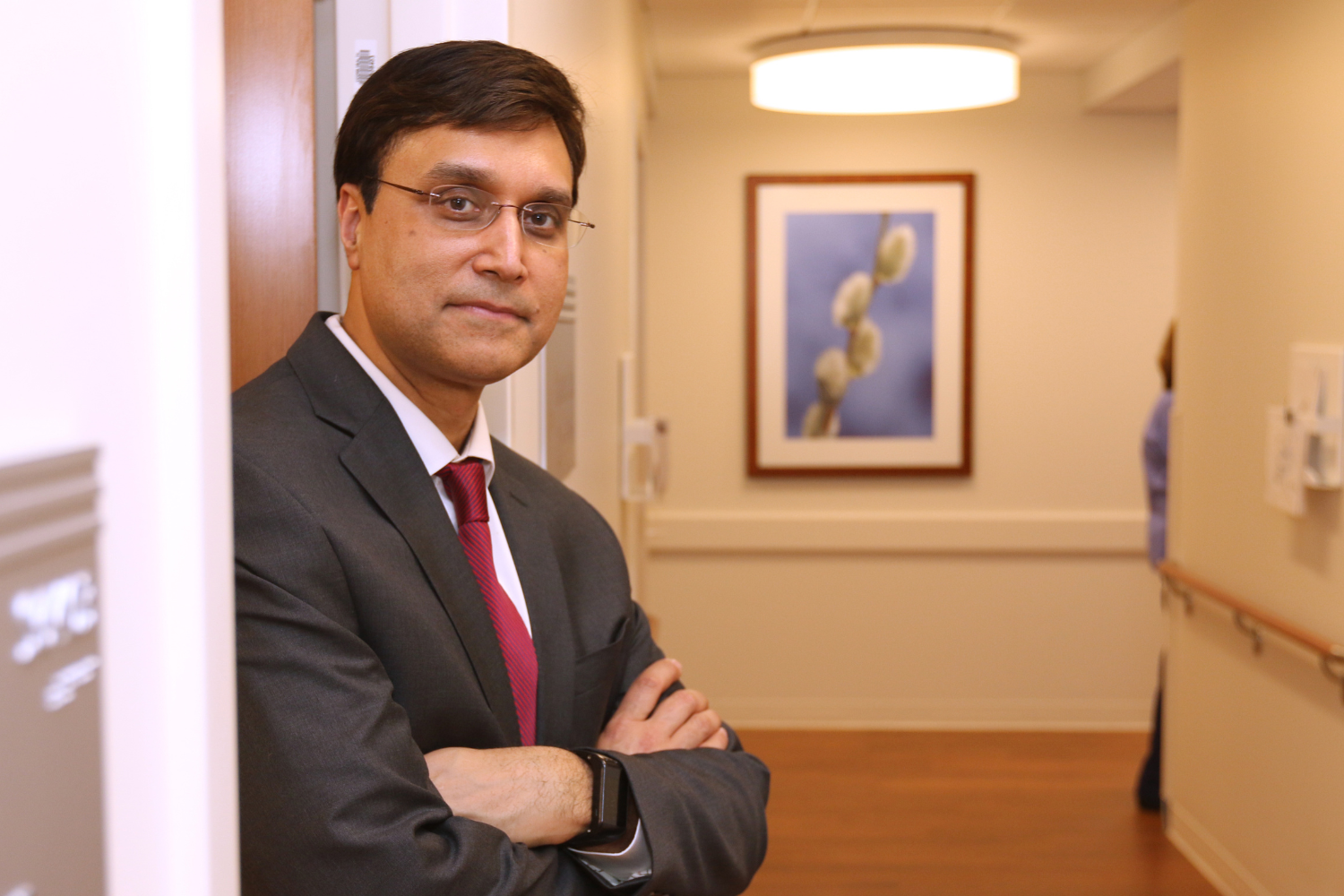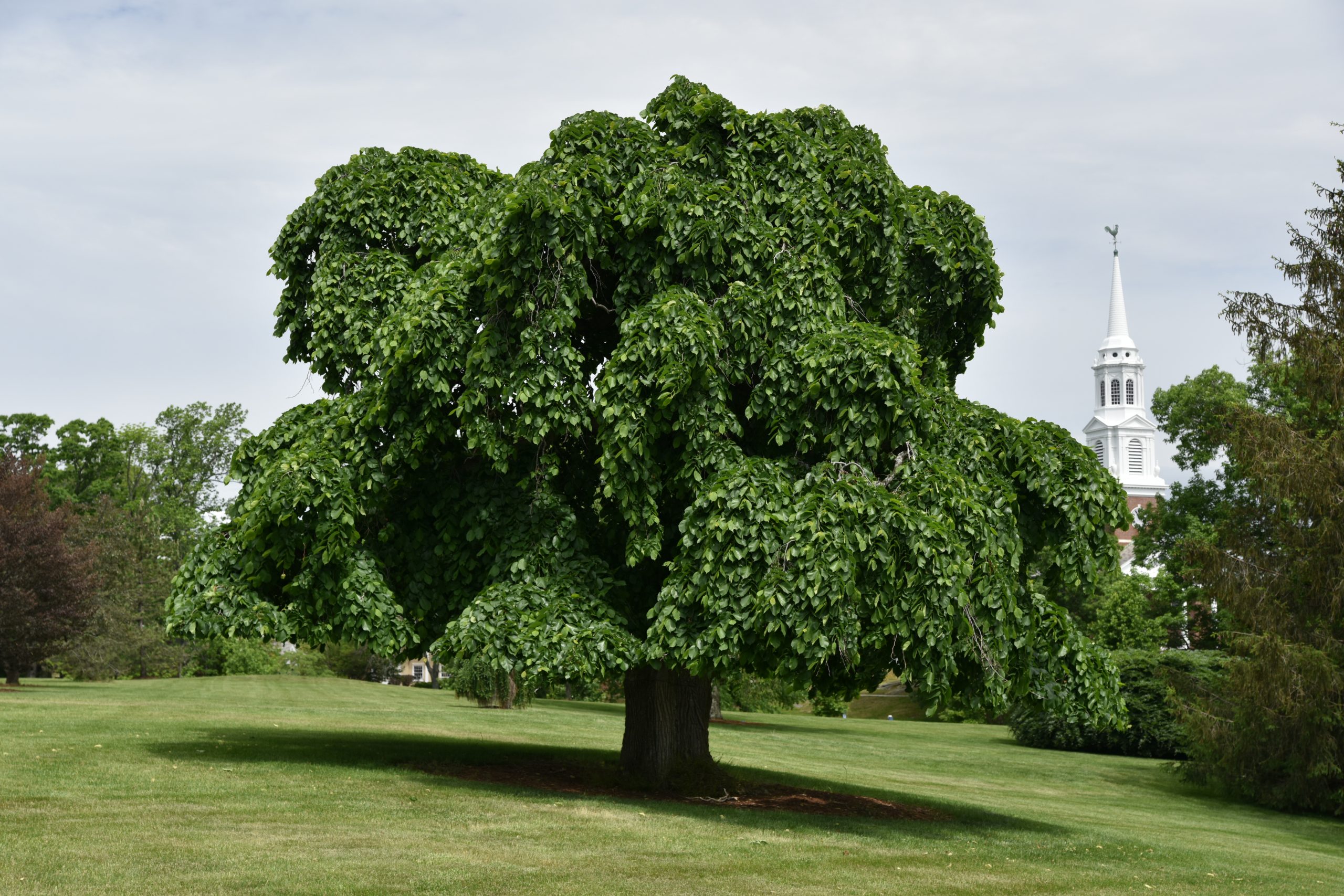
Ask people what they know about the frontiers of mathematics research, and the response is likely to be some variation on: “What is there to research about math?”
“I think it’s a product of the way we teach math,” says Jeremy Teitelbaum, dean of the College of Liberal Arts and Sciences and a professor of mathematics. “Most people’s mathematics education ends with things that have been known for 2000 years.”
Even university students pursuing advanced degrees in fields like physics or engineering are likely to end their study with differential equations or vector calculus, fields that were fully developed and understood by the 19th century. Math seems to many people like a body of knowledge that is both static and complete, particularly to Americans, who (as a recent New York Times article points out) are among the most math-ignorant people in the developed world.
Yet math is very much alive, Teitelbaum insists, and there are some very simple phenomena like fluid mechanics that to date have defied exact mathematical description. “If you look at a breaking wave on the beach, or the flow of air over an airplane wing, we don’t have a detailed theoretical understanding of these things,” he says.
And so, in university mathematics departments worldwide, researchers like UConn’s Ralf Schiffler are pushing the boundaries of the field. Schiffler, whose long hair and imposing Teutonic brow make him look more speed-metal guitarist than college professor, will soon publish a paper in one of the world’s pre-eminent mathematics journals, Annals of Mathematics.
The paper, “Positivity for Cluster Algebras,” proves a conjecture that was first proposed more than a decade ago – which by mathematics standards is a pretty quick turnaround. “It’s very new,” Schiffler says, only half-joking. “In math anything younger than 50 years is new.”
Schiffler shows, over the course of more than 30 pages of seemingly impenetrable equations, that the coefficients of the Laurent polynomials that represent the cluster variables that are mutated to generate cluster algebras are all positive.
If that sounds like Greek to you, you’re not alone.
“It’s quite a technical result,” says Teitelbaum, and it’s a big deal, even if it may seem arcane. “Annals is the most important mathematics journal in the world,” he adds. “For a mathematician to get their paper accepted means they have solved a major problem in the field.”
Currently, that problem is strictly theoretical. Schiffler’s work deals with abstract algebra, a branch of mathematics that studies the nature of algebraic structures. Where most mathematics uses numbers and equations to represent things, like the rate of return of an investment, or the movement of an object through space, abstract algebra explores new systems of equations. Those equations aren’t used to represent anything in the real world, but they are nonetheless fascinating to mathematicians, who – like all researchers – are constantly pushing at the boundaries of what is known.
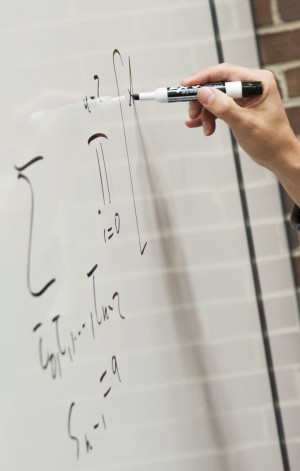
“Mathematics has always been about finding and using new math,” Schiffler says. “I would be thrilled to see real-life applications, but I don’t think we’re there yet.”
Not to worry, says Teitelbaum. Inventing abstract math is a bit like building a house, even though no one is going to live in it right away. We might not need it for anything now, but it’s likely to turn out to be useful … someday.
History is on Teitelbaum’s side. For several hundred years at least, advances in mathematics have preceded huge leaps in physics, engineering, and other branches of science. The groundbreaking physics done in the 19th century by Maxwell would have been impossible without the 18th century math done by Laplace; and the 19th century math of Riemann enabled the 20th century physics done by Einstein. “Human curiosity takes us in a direction,” says Teitelbaum, “and it turns out to be useful later. Even if it takes 100 years.”
In the meantime, researchers like Schiffler toil away, doing work that may be several generations away from finding an application, often using the same simple tools that mathematicians have used for millennia. “It’s just paper,” Schiffler says, explaining that he and his co-author spent several years sending longhand drafts of the manuscript back and forth to one another, occasionally getting together to chat via Skype.
The field doesn’t use any of the fancy billion-dollar instruments you find in many other branches of science. It relies on pencils, paper, and the diligence and ingenuity of a small number of very dedicated researchers. There’s something elemental about that process, something timeless. Schiffler seems to prefer it that way, and feels at home in the abstract, almost ascetic world of mathematics.
I asked Schiffler how he chose a career as a mathematician, and he pondered the question awhile before deciding it was largely a process of elimination. He tried other fields of science, including astronomy and biology, but found he disliked the interminable periods of waiting to make observations. He even briefly pondered pursuing a degree in philosophy, he says, “But then you look at, what can you do afterwards with that?”
“You could be a professor,” I pointed out.
He laughed.
“I didn’t think about that,” he said, but it was clear from the look on his face he is perfectly happy where he is.
